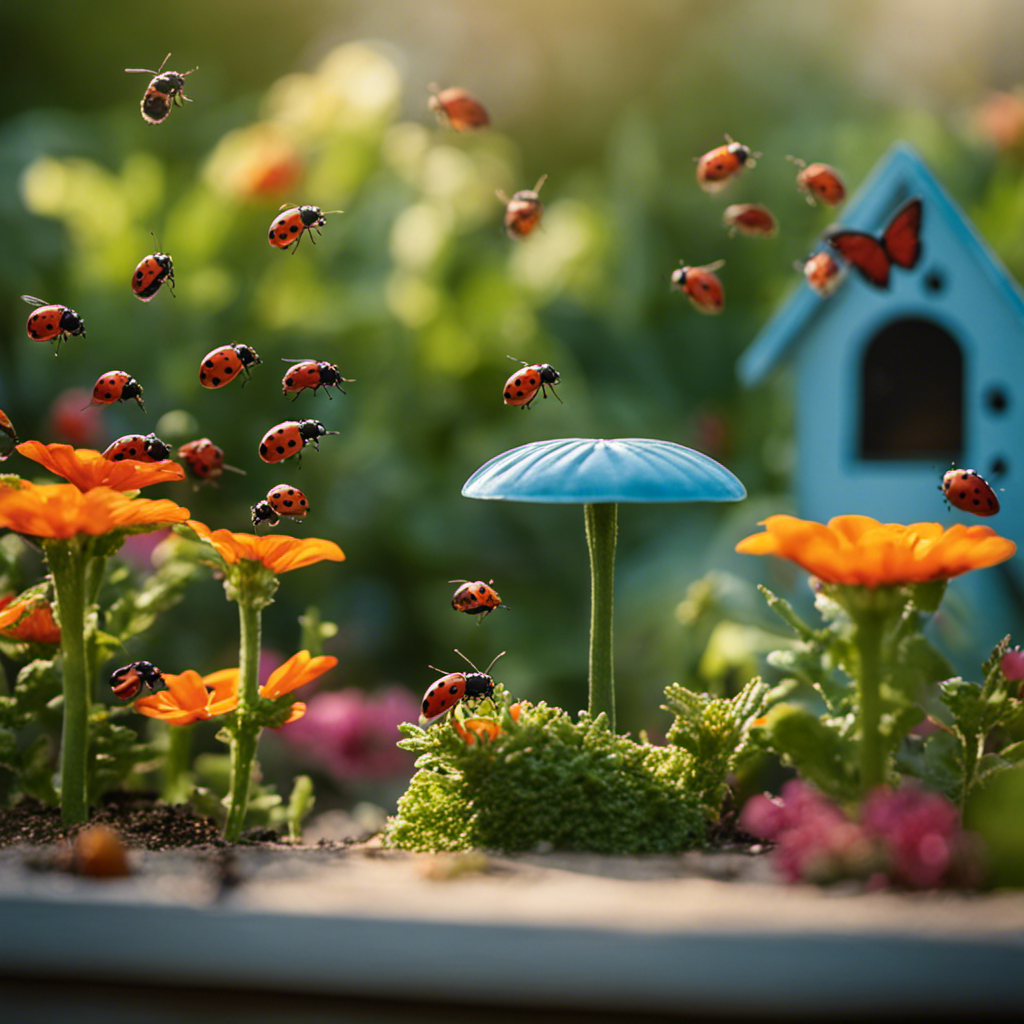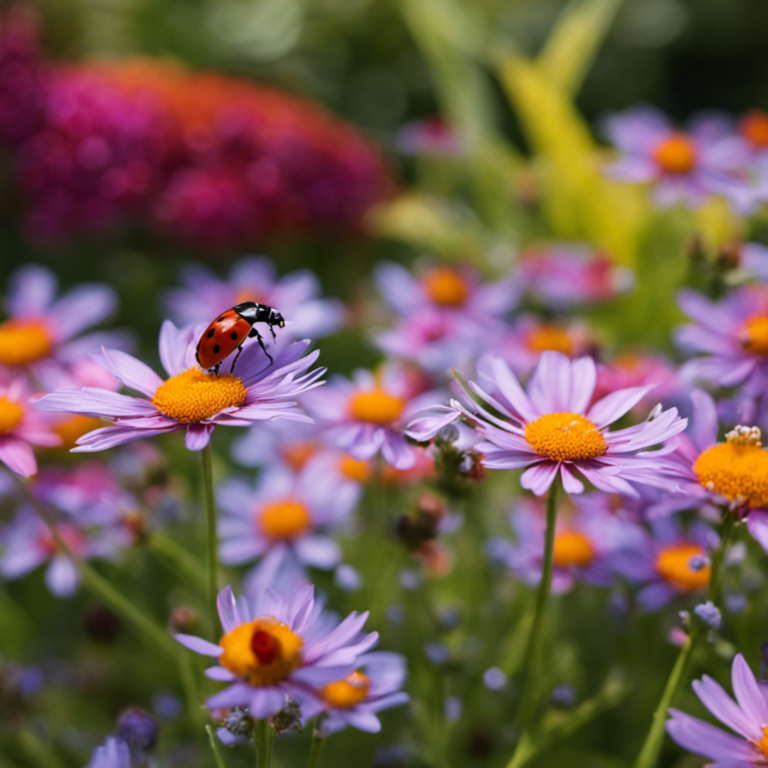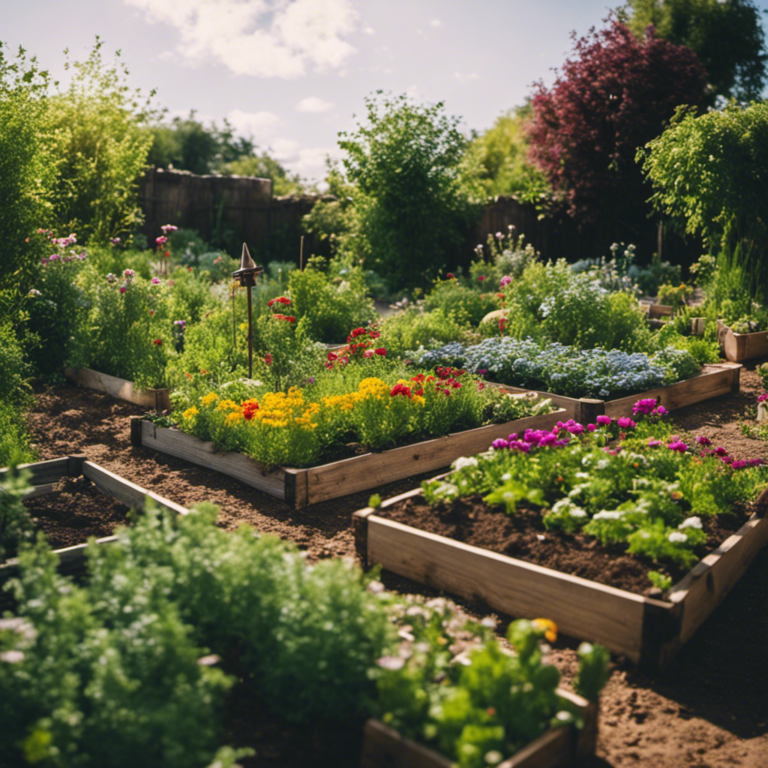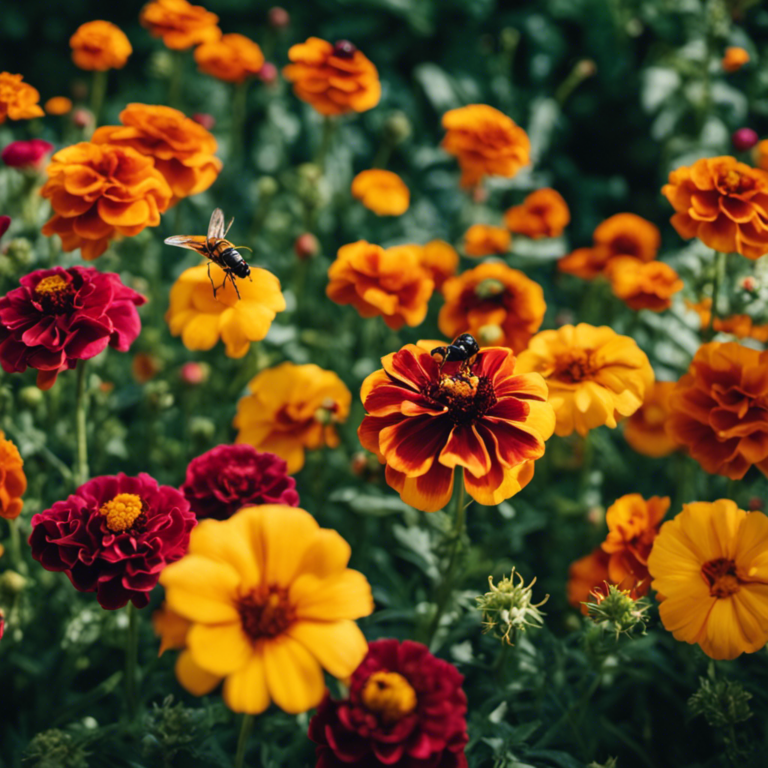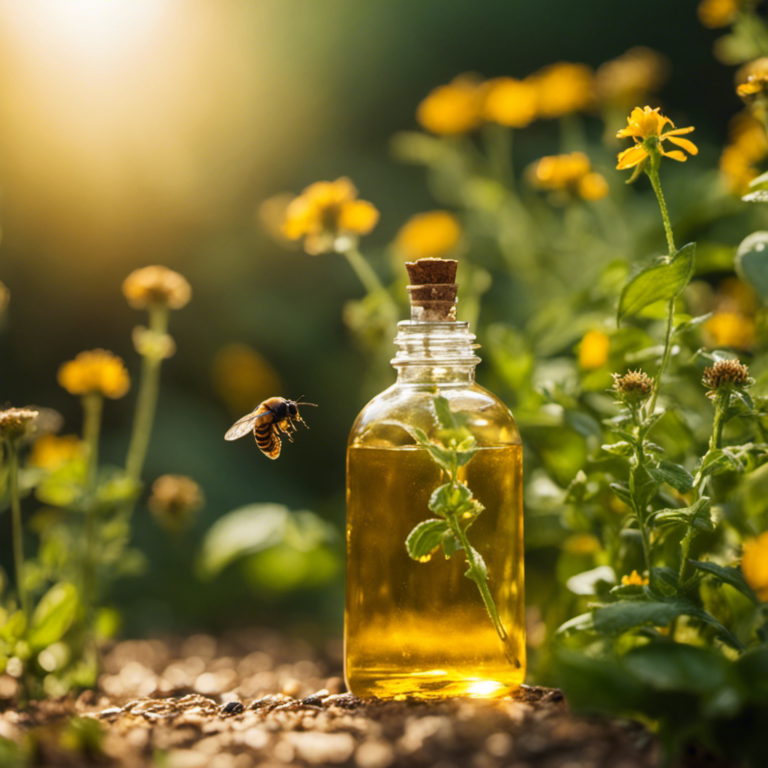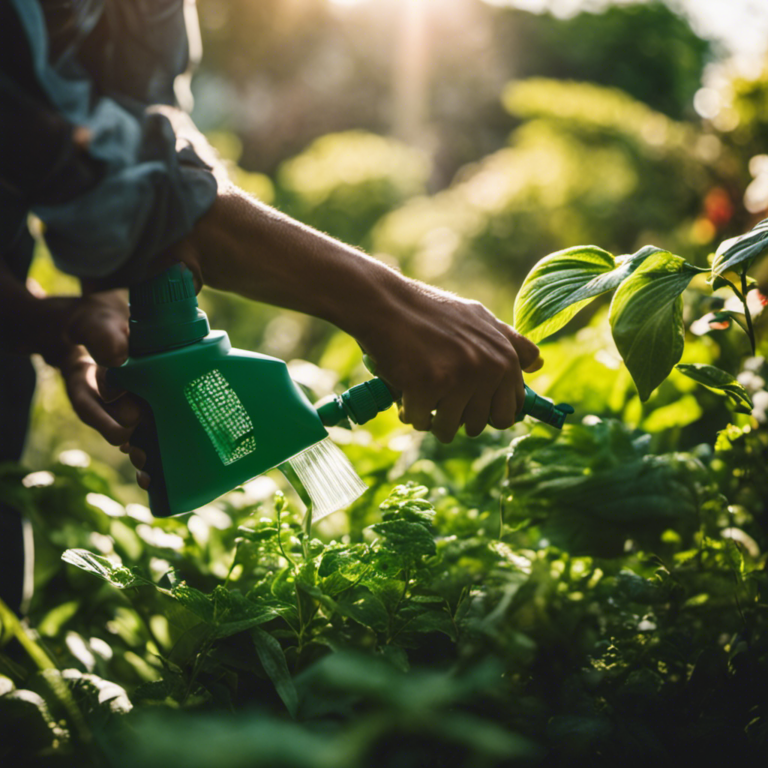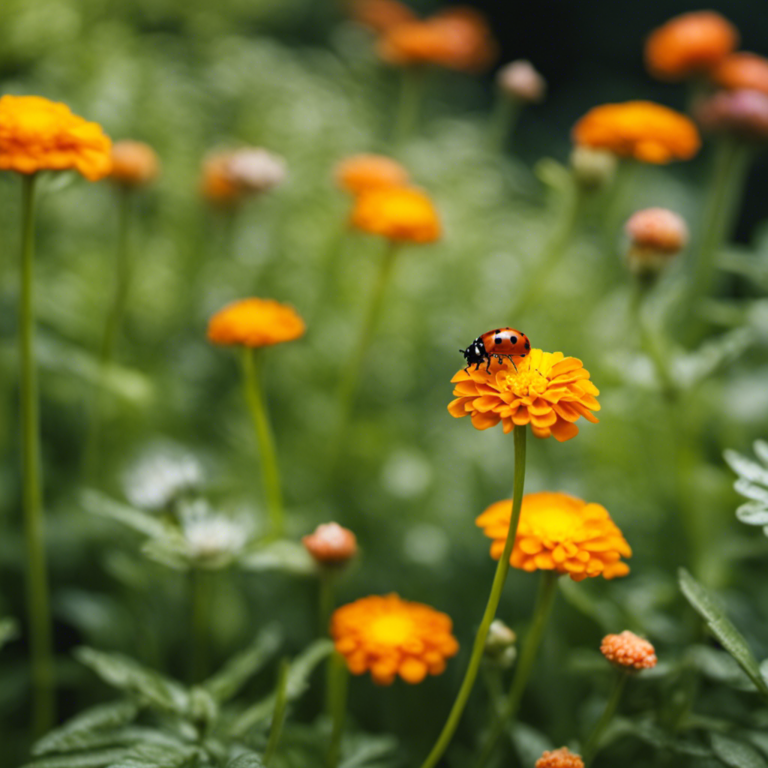Discover the key to maintaining a pest-free home garden naturally and enjoy the serenity it brings. Bid farewell to harmful chemicals and embrace safe and eco-friendly solutions.
By incorporating companion planting, attracting natural predators, utilizing biological controls, organic pesticides, and enhancing the soil, you can cultivate a flourishing garden without the annoyance of pests.
Let us be your guide on this journey towards a harmonious and abundant garden, where nature thrives and you reap the rewards.
As the saying goes, ‘In a garden, one can find solace and beauty while being in harmony with nature.’
Key Takeaways
Achieve a Pest-Free Home Garden Naturally
Creating a pest-free environment in your home garden naturally is not only possible but also beneficial for the environment and your health. By utilizing companion planting, natural predators, biological controls, organic pesticides, and soil amendments, you can establish a balanced ecosystem in your garden.
Say goodbye to harmful chemical pesticides and welcome a flourishing garden that thrives in harmony with nature. Follow this expert advice and experience the satisfaction of a naturally pest-free garden.
Companion Planting
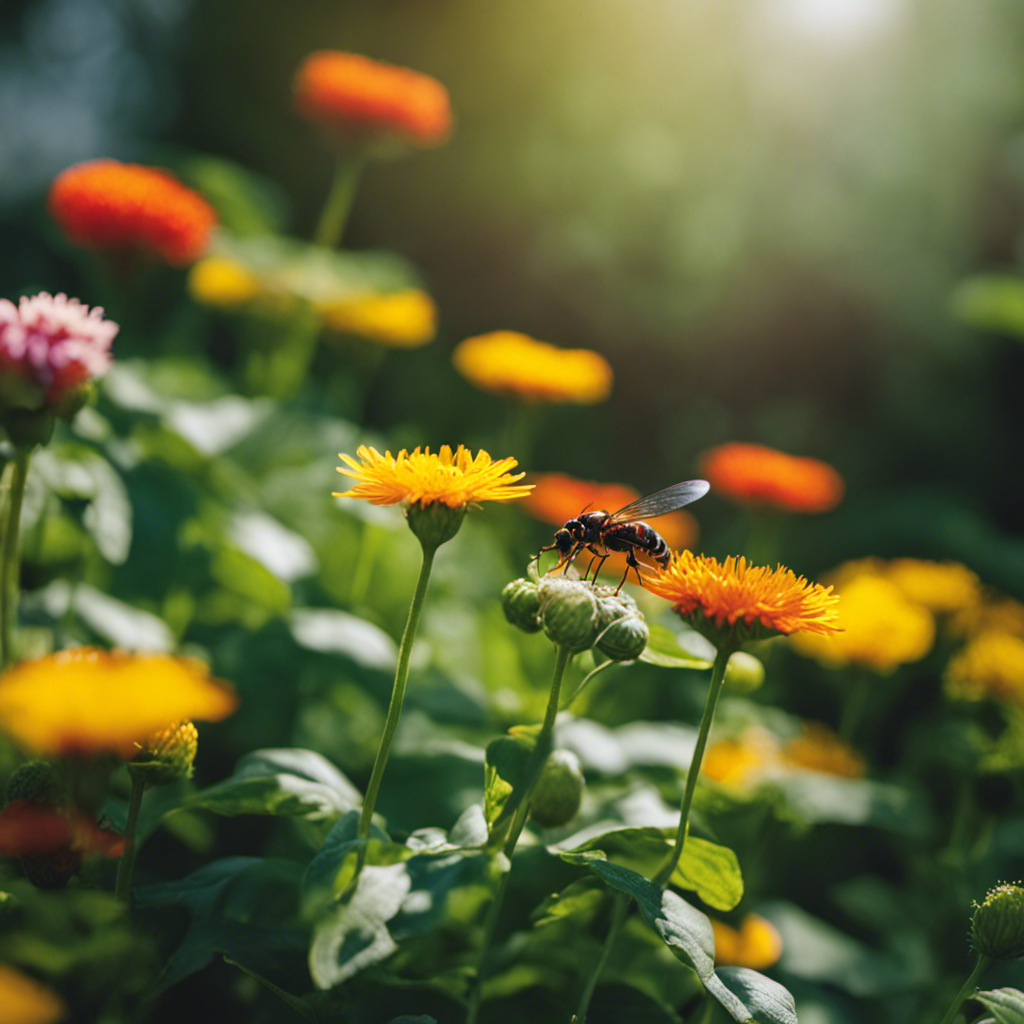
Enhance Your Garden with Companion Planting
To create a garden that’s free from pests, you can improve your planting strategy by incorporating companion plants. Companion planting involves strategically placing certain plants together to benefit each other and deter pests.
One effective technique is crop rotation, where you rotate the location of different crops each year. This helps disrupt pest life cycles and reduces the buildup of pests in the soil.
Another technique is interplanting, which involves planting different species together in the same area. For example, planting basil near tomatoes can repel pests that commonly attack tomato plants. Additionally, interplanting flowers and herbs among your vegetables can attract beneficial insects that prey on pests.
Natural Predators
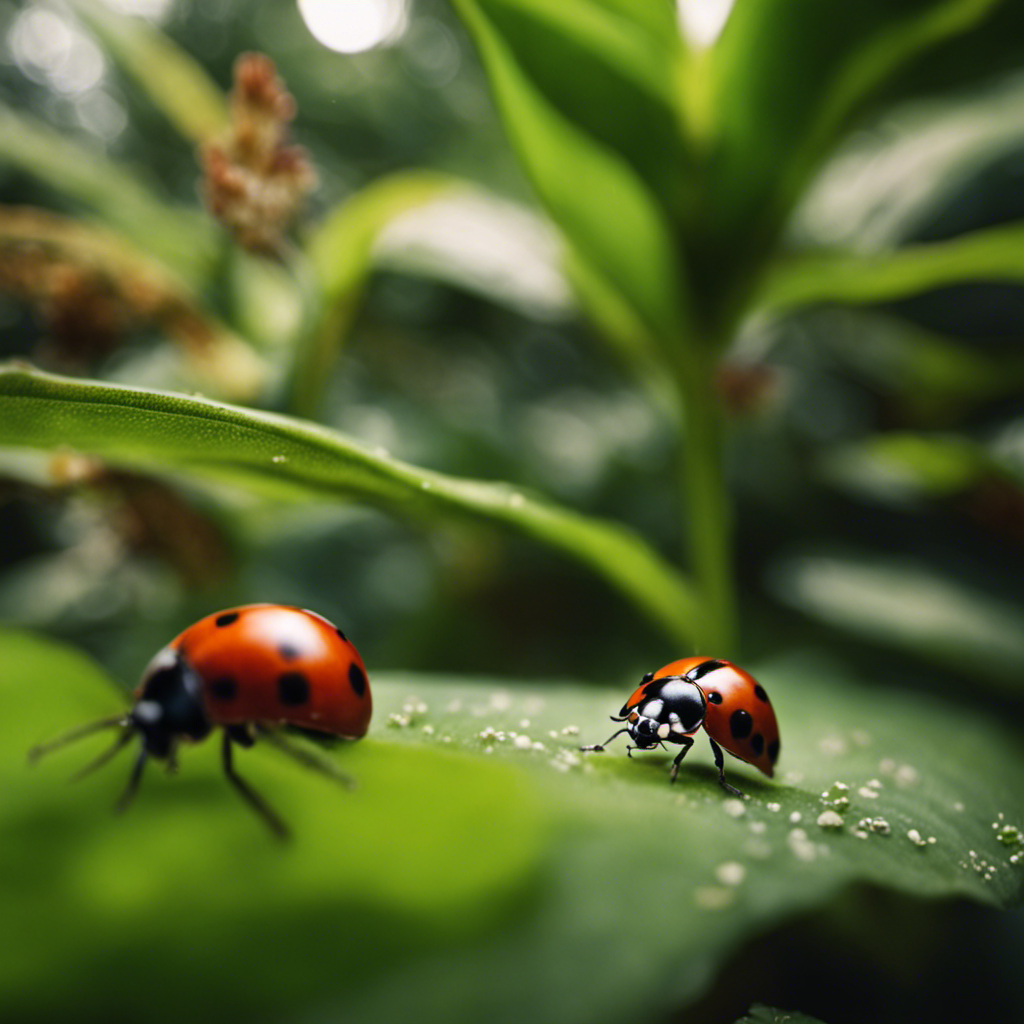
Invite beneficial insects to your garden by creating habitats that attract natural predators. These predators are an effective form of pest control as they feed on harmful insects that can damage your plants. By providing a welcoming environment for these beneficial insects, you can achieve a natural balance in your garden and reduce the need for chemical pesticides.
Here is a list of some common beneficial insects and the pests they prey on:
- Ladybugs: Prey on aphids.
- Lacewings: Prey on mealybugs.
- Praying mantis: Prey on caterpillars.
- Ground beetles: Prey on slugs.
- Hoverflies: Prey on whiteflies.
Attracting these natural predators can be accomplished by planting a variety of flowering plants, providing water sources, and maintaining areas of undisturbed vegetation. By incorporating these strategies, you can create a thriving garden that’s naturally protected from pests.
Biological Controls
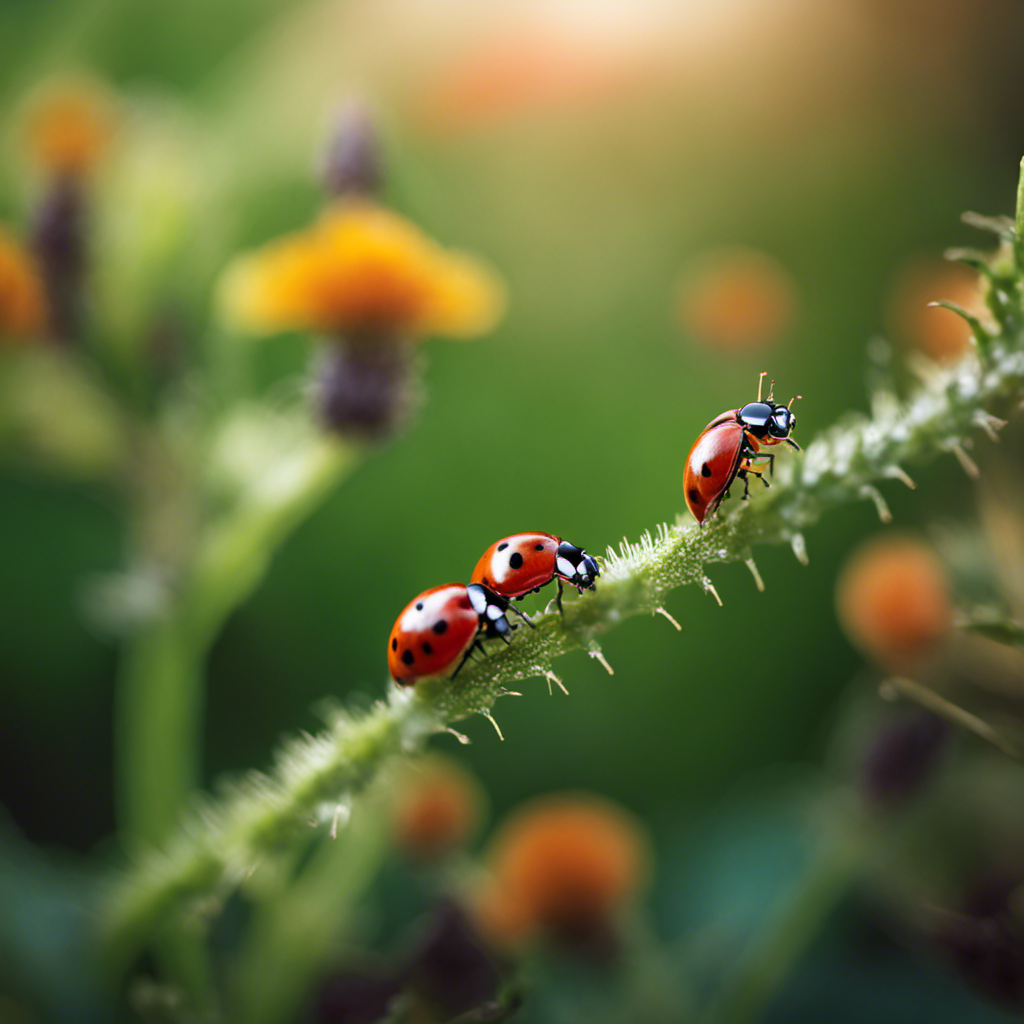
Implementing biological controls in your home garden is an important aspect of integrated pest management. By using natural predators, such as ladybugs, lacewings, and parasitic wasps, you can effectively control pest populations.
Ladybugs feed on aphids, while lacewings prey on aphids, thrips, and mites. Parasitic wasps lay their eggs inside pest insects, leading to their demise.
To attract beneficial insects, consider planting flowers like daisies, marigolds, and sunflowers, as they provide nectar and pollen. It’s also crucial to avoid using broad-spectrum pesticides that can harm these beneficial insects.
Organic Pesticides
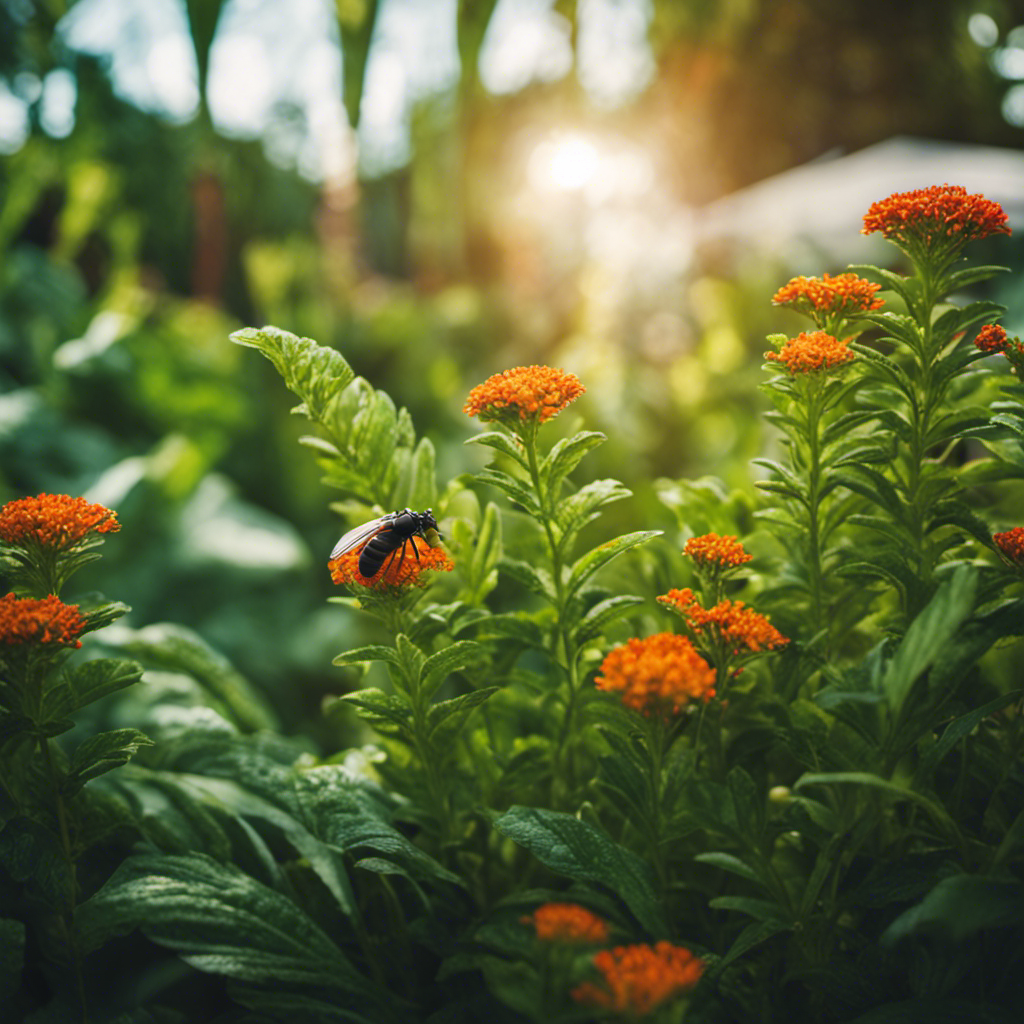
For effective pest management in your home garden, rely on the power of organic pesticides. These natural alternatives aren’t only safer for you and your family, but also for the environment. Organic pesticides work by targeting pests while leaving beneficial insects unharmed. Many of these pesticides can be made at home using simple ingredients like essential oils and other household items.
Here are some examples of homemade remedies that can help you combat pests in your garden:
-
Neem oil spray: Create a solution using neem oil, liquid soap, and water. This spray is effective against aphids, mites, and whiteflies.
-
Garlic spray: Make a solution using garlic cloves, water, and liquid soap. This spray can help control caterpillars, aphids, and beetles.
-
Chili pepper spray: Mix chili peppers, water, and liquid soap to create a spray that’s effective against slugs, snails, and ants.
Soil Amendments
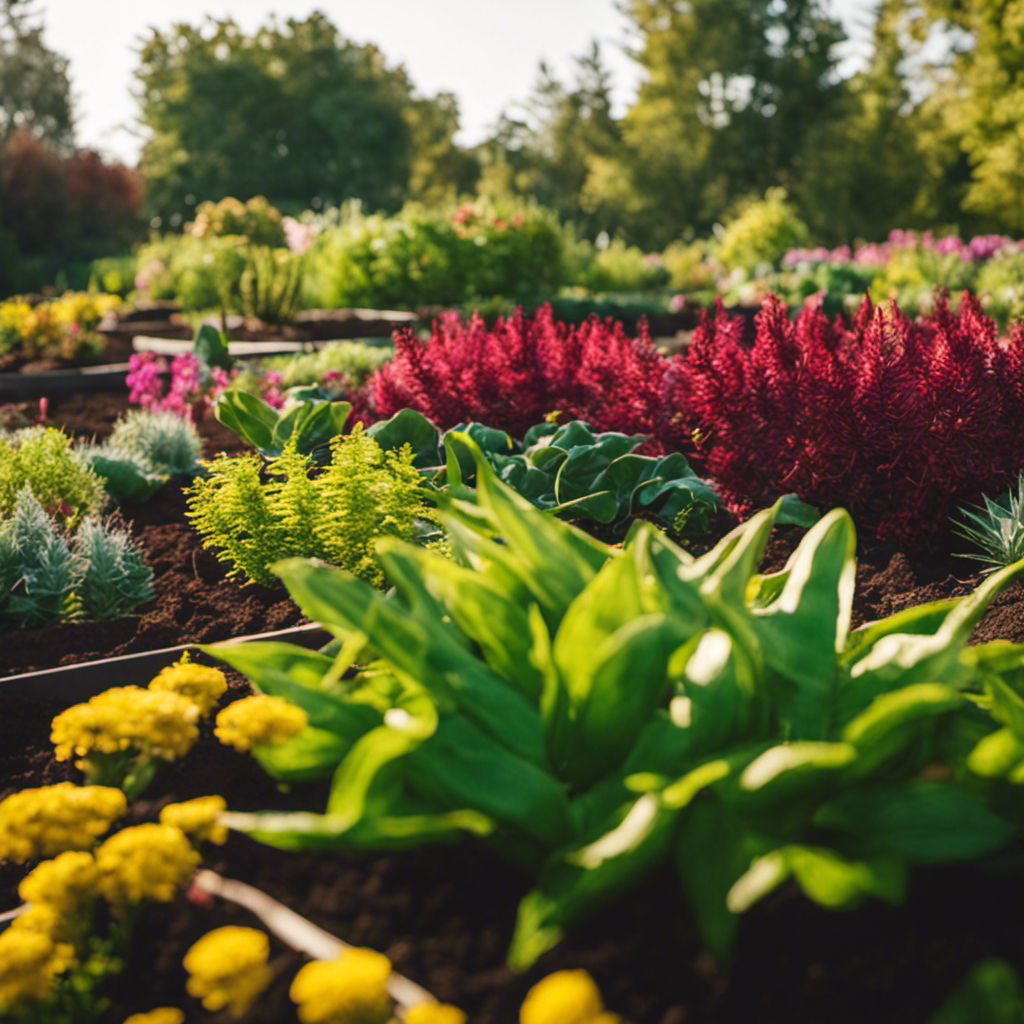
Improve the health of your garden and protect it from pests by incorporating soil amendments.
One effective option is worm compost, also known as vermicomposting. Worm compost is created when worms break down organic waste materials like vegetable scraps and coffee grounds. This process produces nutrient-rich compost that you can add to your soil.
By adding worm compost, you can enhance soil structure, improve moisture retention, and promote healthy plant growth. Additionally, it creates a balanced ecosystem that suppresses pests and allows beneficial organisms to thrive.
To incorporate worm compost into your garden, simply mix it into the soil or use it as a top dressing around your plants. This natural soil amendment will increase soil fertility and create a pest-resistant environment for your home garden.
Conclusion
Unlocking a pest-free environment in your home garden naturally isn’t only possible but also beneficial for the environment and your health. By using companion planting, natural predators, biological controls, organic pesticides, and soil amendments, you can create a balanced ecosystem in your garden.
Bid farewell to harmful chemical pesticides and welcome a flourishing garden that thrives in harmony with nature. Follow this expert advice and enjoy the satisfaction of a naturally pest-free garden.
